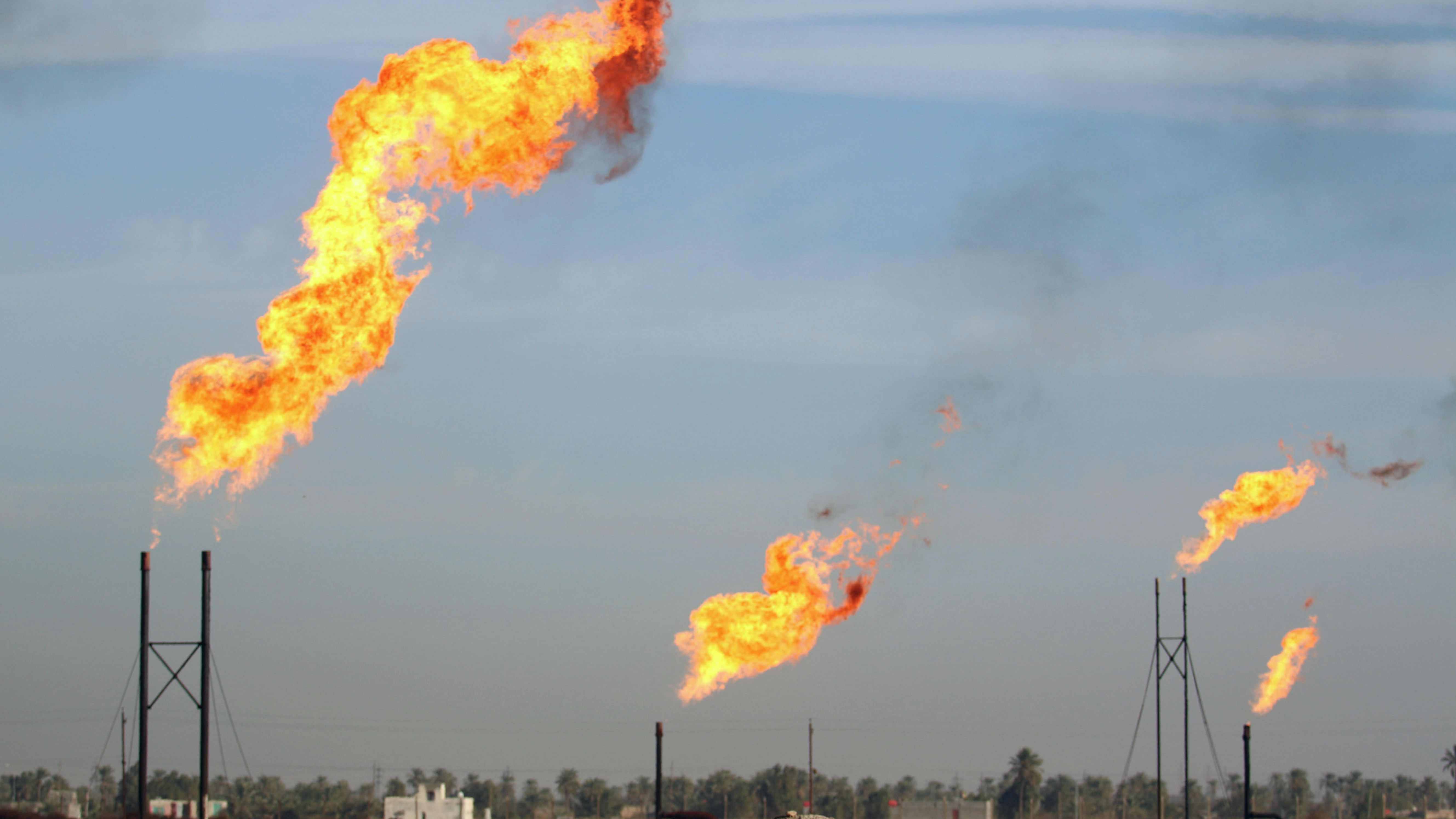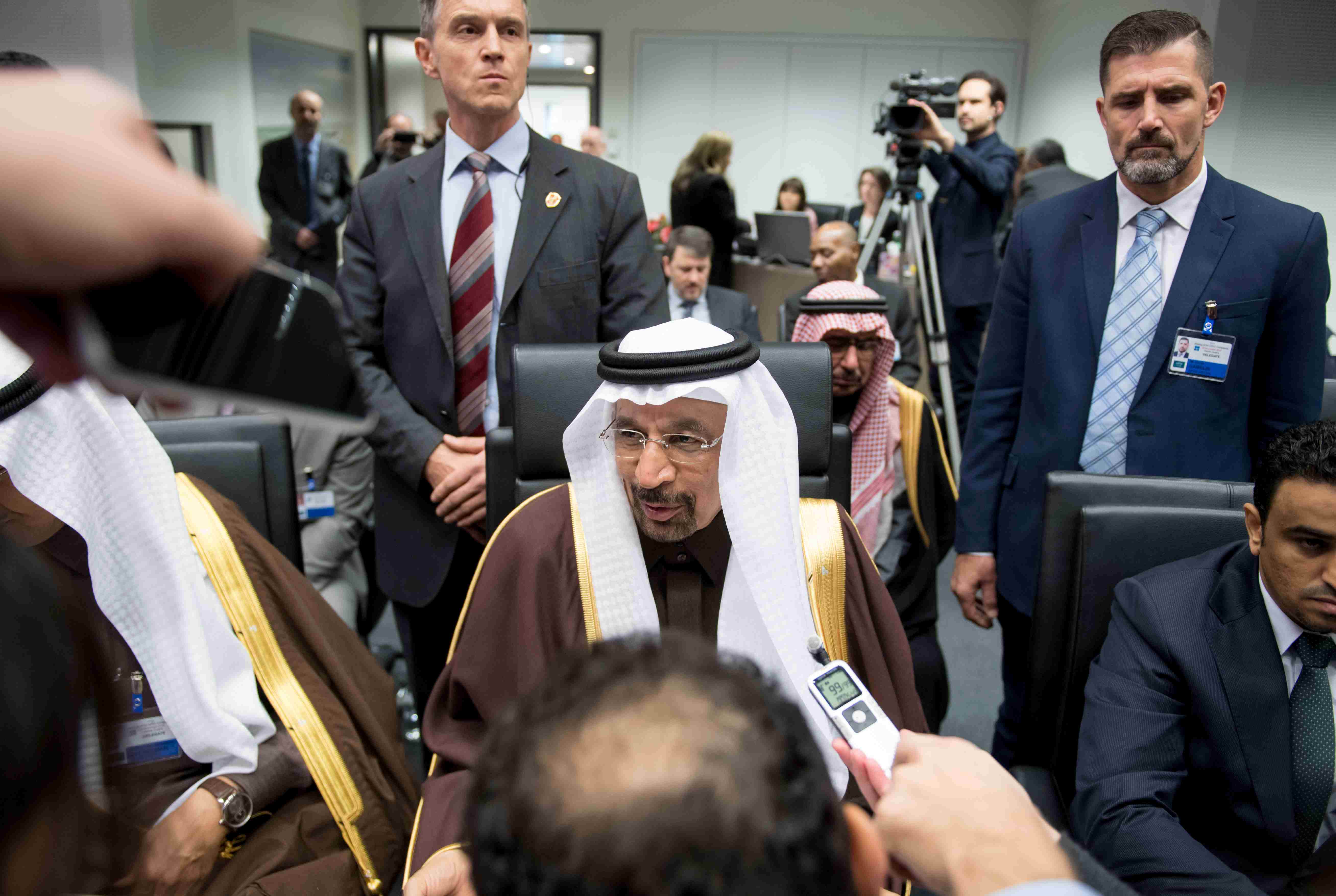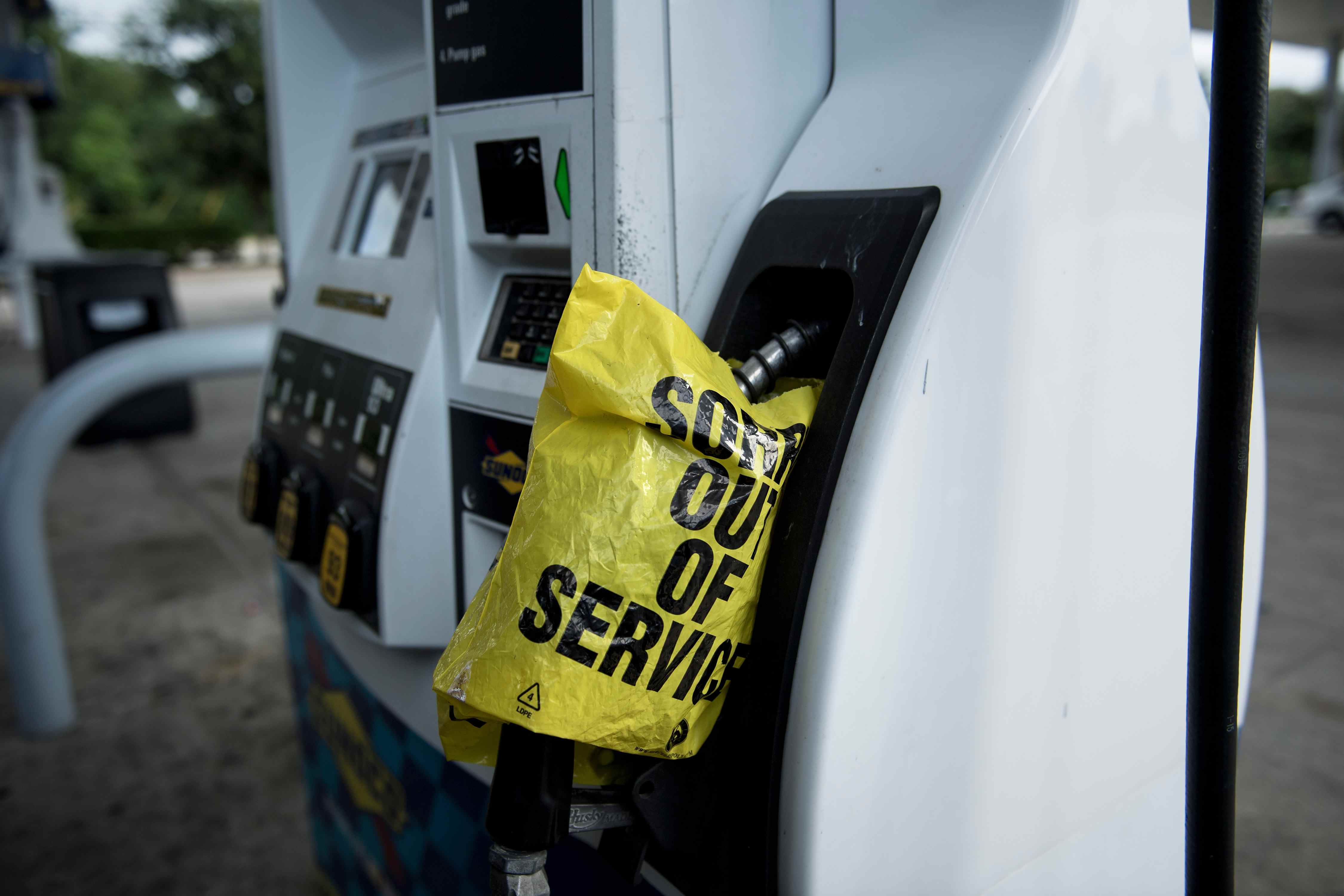
Business
18:10, 13-Sep-2017
Int'l Energy Agency: Oil market moving back into balance
CGTN

There are signs the global oil market is returning to balance and stocks of oil
products in industrialized nations could soon fall below their five-year
average, the International Energy Agency (IEA) said Wednesday.
The IEA also said
production by the Organization of the Petroleum Exporting Countries (OPEC) cartel and its allies fell in August and compliance with
their pact to cut supply to the markets increased.
OPEC and a number of other
producers including Russia agreed last year on production cuts to ease a global
supply glut, but prices haven't risen much above 50 US dollars per barrel as compliance
has been a problem.

Saudi Arabia’s energy minister Khalid al-Falih attends a meeting of OPEC at the group's headquarters in Vienna, Austria on November 30, 2016. The meeting saw OPEC agree to cut oil production by 32.5 mbd. /AFP Photo
Saudi Arabia’s energy minister Khalid al-Falih attends a meeting of OPEC at the group's headquarters in Vienna, Austria on November 30, 2016. The meeting saw OPEC agree to cut oil production by 32.5 mbd. /AFP Photo
But with oil demand perking up as well as hurricanes and
regular summer maintenance knocking out some production, the IEA said it has
seen some of that glut disappear.
Within industrialized countries that are
members of the Organisation for Economic Cooperation and Development (OECD), oil "product stocks are now only 35 mb above the five-year
average," the IEA said in its monthly report.
"Depending on the pace of recovery for the US refining industry post-(Hurricane)
Harvey, very soon OECD product stocks could fall to, or even below, the
five-year level," added the IEA. "Based on recent bets made by investors,
expectations are that markets are tightening and that prices will rise, albeit
very modestly."
Harvey impact 'short-lived'
On Tuesday, OPEC, in its monthly report, also pointed to
a decline in its production in August as a sign that supply and demand could be
moving further toward balance.
"It is clear that the rebalancing process is
under way, supported by the high conformity levels of OPEC member countries and
participating non-OPEC countries to the production adjustments" in the
cooperation agreement, OPEC secretary general Sanusi Barkindo said in a speech
in Oxford on Monday.
The IEA said OPEC crude production fell in August for the
first time in five months, thanks to both cuts in production as well as a
flare-up in turmoil in Libya disrupting output.
The impact of Hurricane Harvey, which struck the US Gulf Coast at the end of August
where significant US refinery and export operations are concentrated, on oil
markets should be brief.

An out of service gas pump is seen during the aftermath of Hurricane Harvey on August 30, 2017 in Houston, Texas. /AFP Photo
An out of service gas pump is seen during the aftermath of Hurricane Harvey on August 30, 2017 in Houston, Texas. /AFP Photo
"As far as Harvey is concerned, disruption to local oil
markets in the US Gulf Coast is easing on a daily basis and its impact on global
markets is likely to be relatively short-lived," said the agency, which advises
the OECD on energy markets.
The IEA also raised its forecast for growth in
global oil demand after thirst for crude "grew very strongly year-on-year" in
the second quarter of this year. It now sees global oil demand increasing by 1.6
million barrels per day (mbd) to 97.7 mbd on average in 2017, thanks to brisk
consumption in Europe and the United States.
Source(s): AFP

SITEMAP
Copyright © 2018 CGTN. Beijing ICP prepared NO.16065310-3
Copyright © 2018 CGTN. Beijing ICP prepared NO.16065310-3